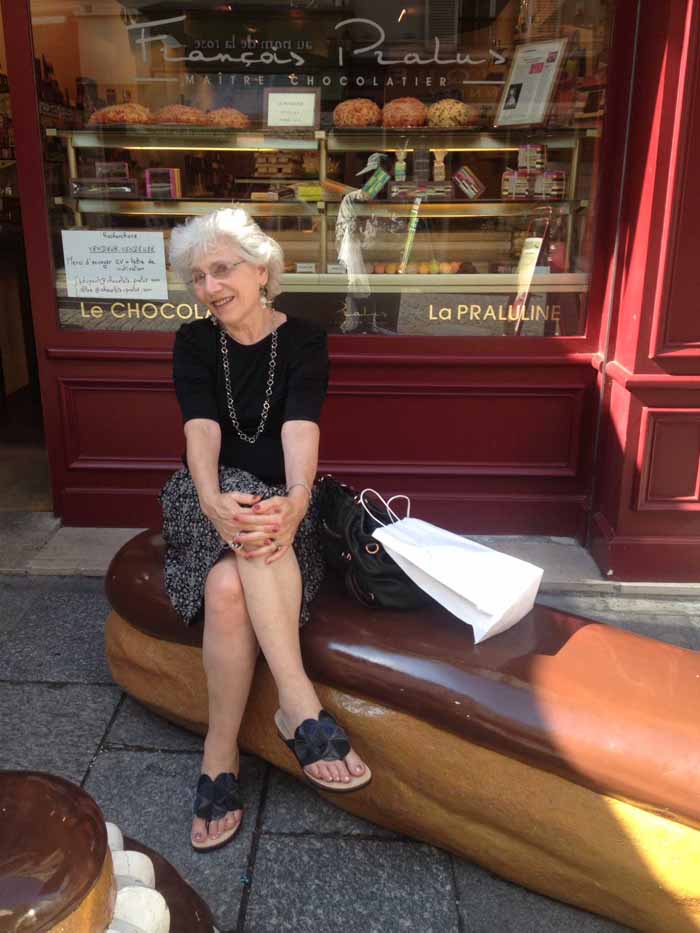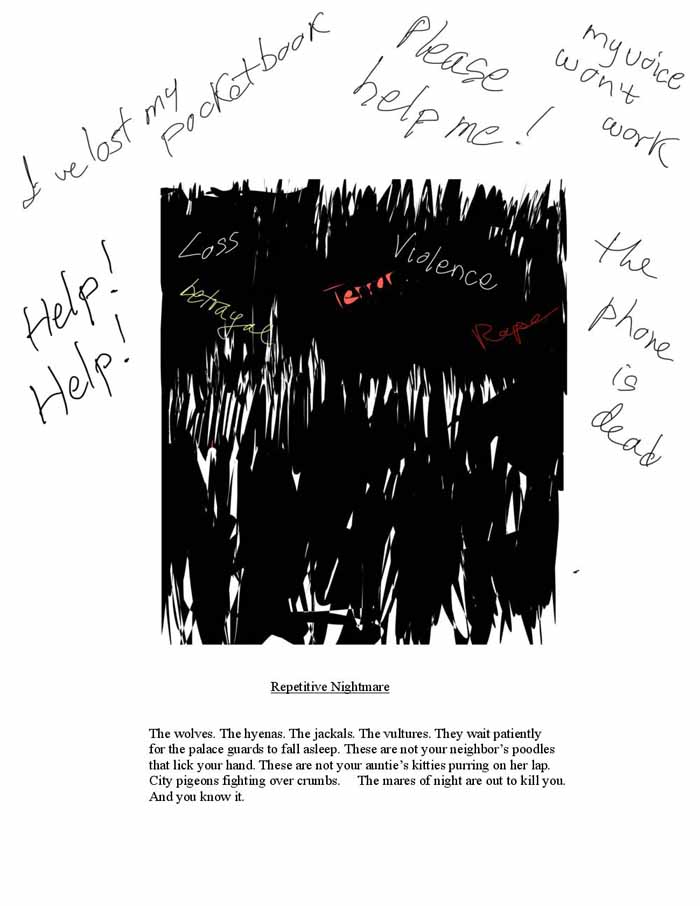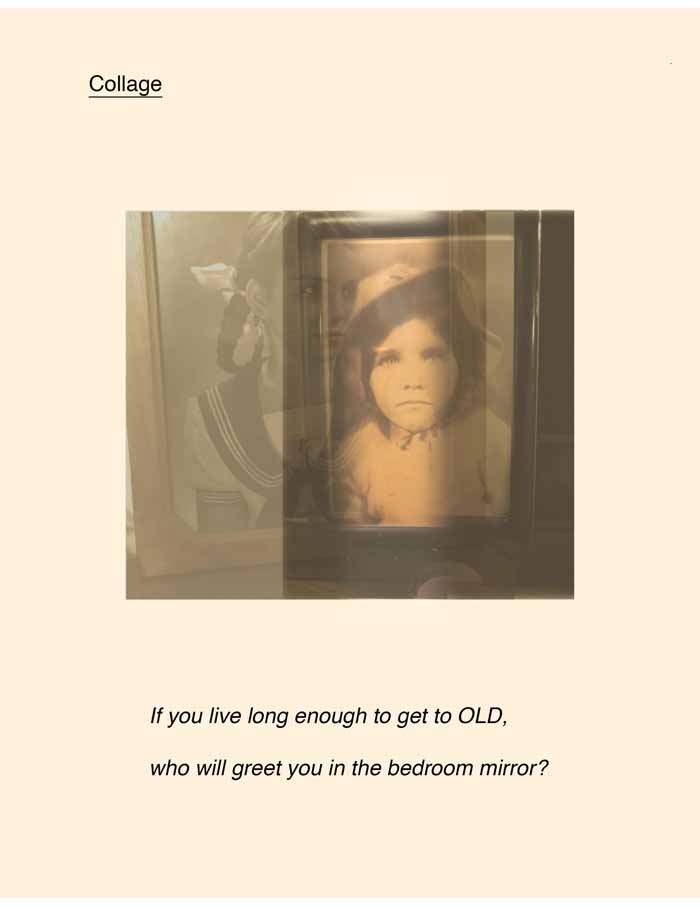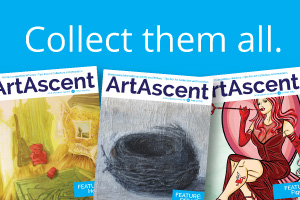Artist Interview | Marian Kaplun Shapiro
Become acquainted with perhaps a few unknown dimensions – thoughts, ambitions, wisdoms, life changing moments – of this inspiring artist.

When it comes to your writing, explain what you do.
I’ve come to define poetry as essence. As essence distilled. As the core of meaning. As the joining of me and the reader who brings themself to the work to which I have brought myself. It includes sound, space, rhythm, and each of our associations which come from each of our lives. It makes real magic.
What project are you working on now?
I have the first five poems for a new series tentatively titled Notes From The Underground. How long will the series be? Well, the last time I started a series I thought would consist of five or so poems, it took on a life of its own until, in a couple of months it had become Upbringing, a collection of 80 primarily graphic poems, which was published (Plain View Press) this January.
Why do you do what you do?
I can’t help it! I used to describe a poem by saying (totally by accident), “in this dream….” Can we help dreaming?
What are your hobbies?
I have always been a musician. I play classical piano almost every night.
How has your practice changed over time?
I used to struggle with structure, counting syllables and so forth. Now I listen to the music and edit where the music is out of tune or where its rhythm makes me trip over it as I read it.

What’s the most indispensable item in your studio?
My computer. I write on my computer, mostly not on paper. I have many eye problems, and the computer can be adjusted to help me to see what I am writing. I am so grateful for it.
Do you make a living off of your art?
Absolutely NOT. I could buy, perhaps, a middle-level dinner from my earnings as a poet every year. Maybe. I earn my living as a psychologist.
What is your pet peeve about the art world?
I don’t have any peeves about the art world. About poetry—well, it should be easier to get visual poetry published. Most publishers don’t want the trouble of doing it. And almost no one will publish poetry that uses colour—too expensive. ArtAscent is a great journal and a great example of daring to commit to whatever is best for the work itself.
What is your strongest childhood memory?
Oh, so many of these—terrible ones, beautiful ones. I can’t choose one bad one and neglect another. So I’ll go the beautiful route.
I was two years younger than my classmates due to the process of skipping prevalent at the time. Being in love with choral music, I auditioned for the NYC high school chorus and was rejected because the conductor said my voice was too childish—I should come back next year. But next year, I’d be graduating! I came home desolate. My father opened the Arts section of the NY Times to a full-page picture of the famed Collegiate Chorale, which was open for auditions. He convinced me to try out—a large professional chorus wouldn’t care about the timbre of my 15-year-old voice—and I did, sitting in the hall at Carnegie Hall, hearing an opera singer precede me. The moment I received the letter accepting me to this fine group (in which the next youngest person was in their 20s) was a thrill I will never forget. Never mind childish—I sang in tune, sight read, and knew how to blend with my neighbour. YES!
Which place in the world do you find to be the most inspiring?
Two sorts of places—Paris, and Rangeley, Maine. Very different indeed! Paris is beautiful as a city; I love its streets, stores, food, wine, culture, and light, and being there with my husband fills me with joy. Rangeley is a rural little town—almost nothing to do but look at and canoe in its lake, walk in its (poison ivy free) woods, and be with my now multi-generational family.

What is your scariest experience?
Visiting my father—who was dying in a NY hospital—I was returning to my Lexington home by plane. I hailed a taxi, sat in the back seat and requested LaGuardia. The driver began to talk, as most cabbies did, but his conversation was alarming. He was obsessively talking about cutting off women’s heads and where he would bury them in Queens (where LaGuardia is located). He locked the back doors electronically—no way out at a traffic light, my first plan. I had nothing to use as a weapon, and I am a small, non-violent person anyway. Having grown up in a housing project, my strongest skill is dealing with all kinds of people. It’s a long-honed ability that I now use as a psychologist. So, I used my training to diagnose the driver (bipolar, manic stage) and directed his obsession to… POTHOLES. “I bet you know every pothole on this route,” I said, and off he went. As we got closer to the exit to the airport, I said, matter-of-factly, “Turn right,” and he did. “Stop here,” I said as we approached the airline doors. When he stopped, the door unlocked, and I exited in a hurry.
I quickly found a police officer whom I had to convince to act quickly before a tragedy occurred. Suddenly the cop got it, said OMG, and headed for his phone. I got on my plane, sat down, and shook all the way home.
What superpower would you like to have and why?
Oh, I would like to live forever, healthy, and full of spirit! Not very likely, however.
What is your dream creative project?
A big book of all my best (from my perspective) work that can live on and change the world of poetry. How’s that for a swelled head?!
Creatively, where do you see yourself in the next five years?
I love to experiment with poetry. My latest book, Upbringing, consists of almost all poems combining drawings, cartoon-like speech, and thought bubbles. What will I do next? More experimenting, I’m sure.
Marian Kaplun Shapiro is currently based in Massachusettes, USA




